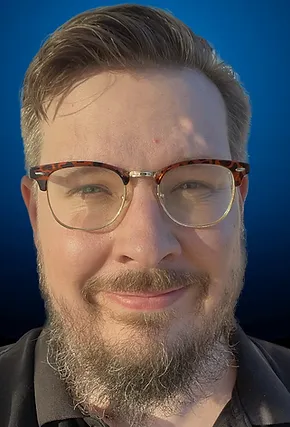Who we are
The Center for International Policy is a woman-led, progressive, independent nonprofit center for research, education, and advocacy working to advance a more peaceful, just, and sustainable U.S. approach to foreign policy.
Our work spans six regions and covers issues ranging from U.S. security assistance,
nuclear
disarmament, and corruption to climate change and emerging technology. Through research,
convening, and
strategic communications, we provide nuanced analyses and promote evidence-based policy
solutions to
address today's most urgent global threats. We also work with journalists, scholars, and
civil society
organizations to inform the public and hold decision-makers accountable. Central to our
mission is the
inclusion and integration of diverse perspectives into our research, which center the
voices of
communities most impacted by U.S. foreign policy – both at home and abroad.
Through partnerships, working groups, fellowships and programs –-including Climate and Militarism Program (CAMP), Diplomacy to End Nuclear Threat (DENT), Forum on the Arms Trade, Legislative Tracker, Science and Technology for Peace and Security Program (STEPS), Security Assistance Monitor (SAM) and Women for Weapons Trade Transparency (W2T2)-– CIP provides cross-cutting analysis that examines the true causes and unforeseen consequences of conflict.
Our Values
Coalitions
We are honored to work in partnership with dedicated organizations fighting for a just, safe, and sustainable future for all. Learn more about our coalition work below.
-

Arms Sales Accountability Project (ASAP) Coalition
The Arms Sales Accountability Project convenes diverse organizations that undertake research, advocacy, and public engagement related to United States arms sales and security assistance.
learn more -
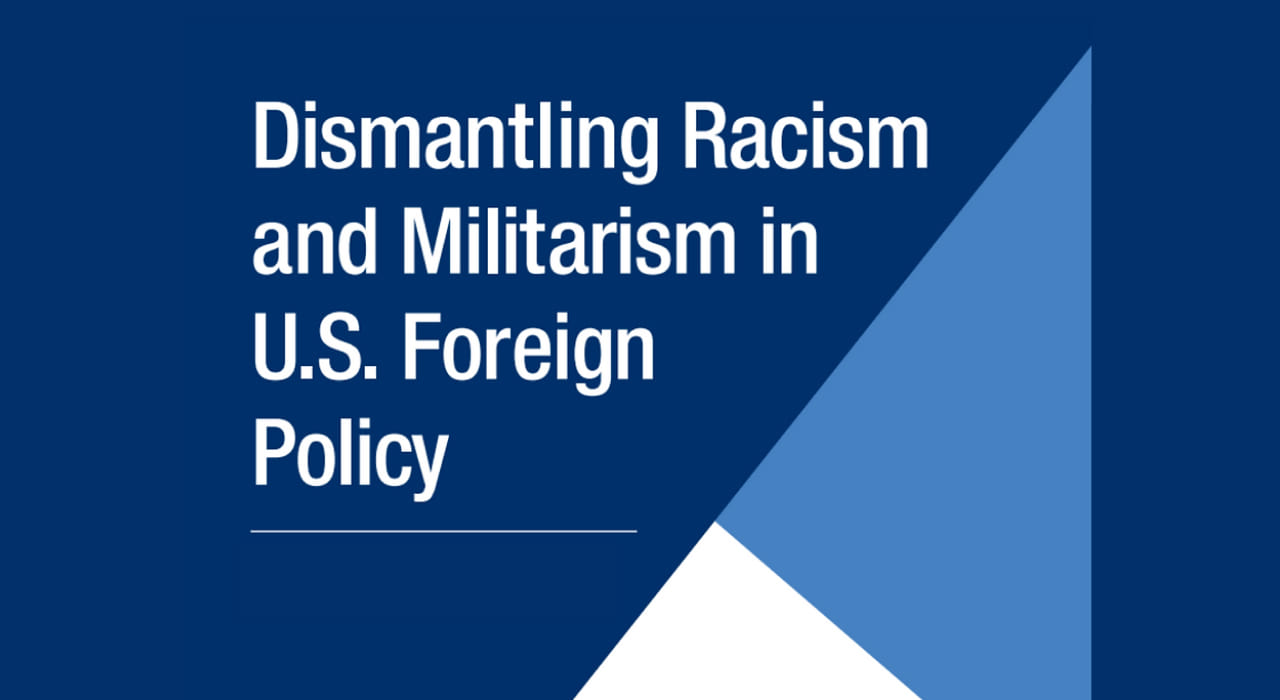
Dismantling Racism and Militarism in U.S. Foreign Policy Coalition
Read about the original working group and the 2021 report on Dismantling Racism and Militarism in U.S. foreign policy here.
our new 2023 Pocantico Conference report
Work with us

President and CEO
Nancy Okail is President and CEO of the Center for International Policy. Dr. Okail is a leading scholar, policy analyst, and advocate with more than 20 years of experience working on issues of human rights, democracy, and security in the Middle East and North Africa region.
In 2020, Okail was appointed as a visiting scholar at the Center for Democracy, Development and the Rule of Law (CDDRL) at Stanford University, focusing on accountability and the intersection of human rights and technology. Prior to joining Stanford, she served as Executive Director of the Tahrir Institute for Middle East Policy (TIMEP), which under her leadership became an internationally renowned policy research organization.
Before coming to the United States, Okail worked on, managed, and evaluated foreign aid programs for
several
international organizations, including the World Bank and the United Nations Development Programme.
In her
subsequent role as Director of Freedom House’s Egypt program, Okail was one of the 43
nongovernmental
organization workers convicted and sentenced to prison in a widely publicized 2012 case for
allegedly using
foreign funds to foment unrest in Egypt. She was then exonerated by a court ruling in December of
2018.
Okail holds a Ph.D. from the University of Sussex in the UK. Her policy analysis and political
commentary have
been featured in top outlets including the Washington Post, New York Times, Foreign Affairs, and
Lawfare. She
has been interviewed or quoted by The Guardian, BBC World News, MSNBC, and Al Jazeera, and she
regularly
speaks on current affairs panels at world fora and academic institutions.
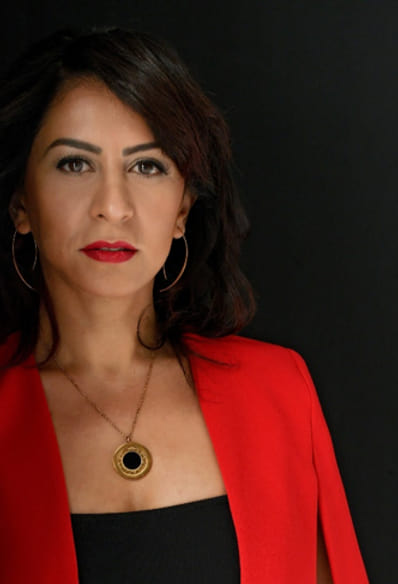
President and CEO
Nancy Okail is President and CEO of the Center for International Policy. Dr. Okail is a leading scholar, policy analyst, and advocate with more than 20 years of experience working on issues of human rights, democracy, and security in the Middle East and North Africa region.
In 2020, Okail was appointed as a visiting scholar at the Center for Democracy, Development and the Rule of Law (CDDRL) at Stanford University, focusing on accountability and the intersection of human rights and technology. Prior to joining Stanford, she served as Executive Director of the Tahrir Institute for Middle East Policy (TIMEP), which under her leadership became an internationally renowned policy research organization.
Before coming to the United States, Okail worked on, managed, and evaluated foreign aid programs for
several
international organizations, including the World Bank and the United Nations Development Programme.
In her
subsequent role as Director of Freedom House’s Egypt program, Okail was one of the 43
nongovernmental
organization workers convicted and sentenced to prison in a widely publicized 2012 case for
allegedly using
foreign funds to foment unrest in Egypt. She was then exonerated by a court ruling in December of
2018.
Okail holds a Ph.D. from the University of Sussex in the UK. Her policy analysis and political
commentary have
been featured in top outlets including the Washington Post, New York Times, Foreign Affairs, and
Lawfare. She
has been interviewed or quoted by The Guardian, BBC World News, MSNBC, and Al Jazeera, and she
regularly
speaks on current affairs panels at world fora and academic institutions.
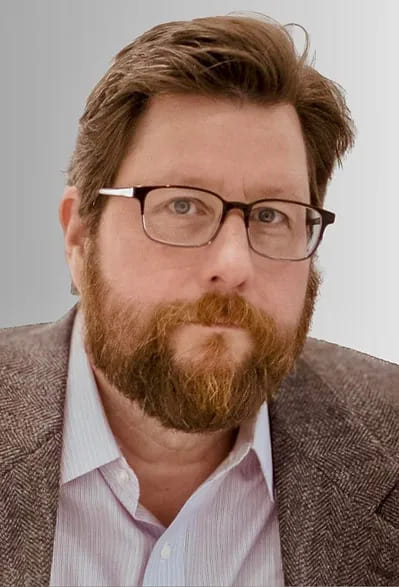
Executive Vice-President
Matthew Duss is Executive Vice-President at the Center for International Policy. Before joining CIP, Duss was a visiting scholar in the American Statecraft Program at the Carnegie Endowment for International Peace. From 2017-22, Duss was foreign policy advisor to Senator Bernie Sanders (I-Vt). From 2014-17, Duss was the president of the Foundation for Middle East Peace. From 2008-14 Duss was a National Security and International Policy analyst at the Center for American Progress.
Duss’s work has been widely published, including in The New York Times, The Washington Post, Foreign Affairs, The Nation, The American Prospect, and Foreign Policy.
Duss has an MA in International Studies from the University of Washington’s Henry M. Jackson School, and a BA in political science from the University of Washington.
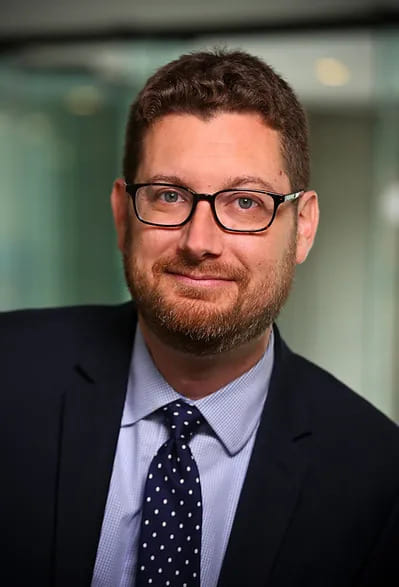
Vice President for Government Affairs
Dylan Williams is Vice President for Government Affairs at the Center for International Policy. Named one of The Hill‘s “Top Lobbyists” seven years in a row, Dylan worked for more than a decade as J Street’s chief lobbyist responsible for developing and executing the pro-Israel, pro-peace group’s strategy for securing diplomacy-first US policies in the Middle East. Dylan joined J Street in 2009 after serving as Counsel for Foreign Relations, Trade and Immigration to U.S. Senator Olympia Snowe (R-ME). Prior to working on Capitol Hill, Dylan worked as an international trade law attorney for the federal government and practiced securities law in China and Southeast Asia.
Born and raised in Honolulu, Hawaii, Dylan is a member of the New York Bar and holds a law degree (’00) and bachelors degree in government (’97) from Cornell University.
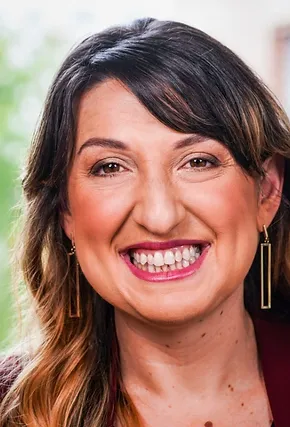
Vice President of Communications
Sara DuBois is Vice President of Communications at the Center for International Policy. A strategic communications professional with 15 years of experience, DuBois began her career in the anti-Iraq War movement and has spent the duration working with progressive and advocacy organizations to advance international and domestic justice among U.S. and international audiences. From 2016-2023, as Vice President at West End Strategy Team and as the founder of her own boutique strategy and communications consultancy, DuBois worked with clients such as the Committee to Protect Journalists, Transparency International, NYU Stern Center for Business and Human Rights, Muslim Advocates and Movement Voter Project to advance organizational goals through narrative campaigns, media coverage, digital channels and strategic partnerships. From 2013-2016, DuBois served as Editorial Director at Amnesty International USA, where she participated in human rights deployments to Ferguson, MO; Selma, AL; and Baltimore, MD. Earlier in her career, she served as communications director at National Security Network (2010-2013); campaigns manager at Message Global LLC (2009-2010); Tracking & Communications Manager at Progressive Media USA (2007-2008); and director of compliance at Sandler, Reiff & Young, PC (2006-2007).
A Baltimore native, Sara holds a bachelor’s degree in Literature & History and in Spanish from the Washington University in St. Louis. She is a contributor to two books on politics and a feature-length documentary.
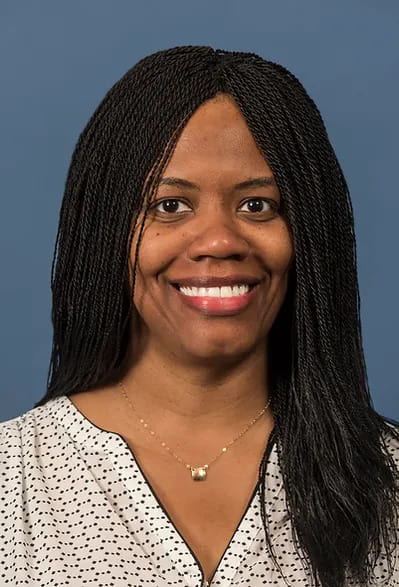
Director of Operations & Finance
As the Director of Finance and Operations, Sonya Carter oversees and manages the organization's finances and business operations as well as the human resources functions. Sonya works alongside other members of the management team to meet the financial objectives set for CIP.
Her experience in finance and administration includes an extensive background in non-profit organizations. As the Administrative Director at Reconnecting America, Sonya managed and streamlined the accounting, administrative and human resources functions across their offices in Washington, DC, Oakland, CA and Denver, CO. Prior to that position, she was the Finance/Administrative Manager at the Surface Transportation Policy Project in Washington, DC.

Director, Climate and Militarism Program
Hanna (she/her) is the Director of the Climate and Militarism Program at the Center for International Policy. Her research focuses on the intersection of militarization, economic inequality, and the climate crisis. She also works with CIP’s leadership on the strategic development and implementation of its new vision and programs promoting progressive U.S. foreign policy. Previously, she worked on police reform efforts in Wisconsin, conducted research for UNICEF, and served as a staffer in the U.S. Senate.
Hanna received her M.A. in International Security Policy at Columbia’s School of International Affairs (SIPA) and her B.A. in Political Science from the University of Wisconsin-Madison.
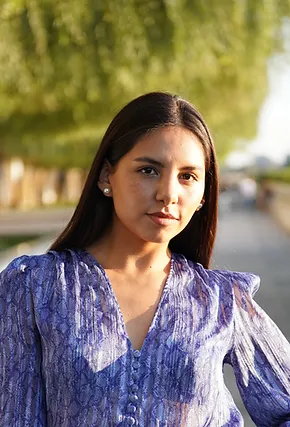
Executive Assistance & Communications Associate
Alessandra Ravelo currently holds the position of Executive Assistant and Communications Associate at the Center for International Policy. In this role, Alessandra provides indispensable support to CIP’s CEO and Executive Board, manages organizational partnerships, and assists in formulating and executing CIP’s public-facing communication strategy.
Alessandra’s professional focus centers on advancing development, cultivating peace, promoting cultural understanding, and fostering prosperity through strategic global communications. She has held previous positions at the Sine Institute of Politics and Policy at American University and the Embassy of the Czech Republic in Washington, DC.
Alessandra earned a Bachelor's Degree in Political Science and Government from Jacksonville University with a focus on International Studies. She later completed a Master's Degree in International and Intercultural Communication at the School of International Service at American University, specializing in global strategic communications.
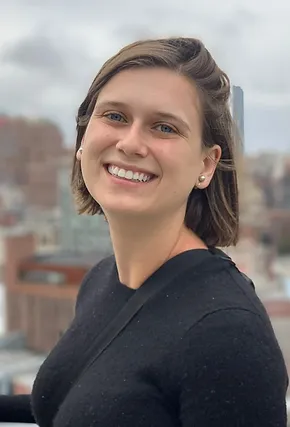
Director, Security Assistance Monitor
Ari Tolany is the Director of the Security Assistance Monitor (SAM) program at the Center for International Policy. Previously, she was the U.S. Program Manager at Center for Civilians in Conflict (CIVIC) and the Herbert J. Scoville Peace Fellow at the Stimson Center's South Asia Program. Ari is an expert with the Forum on the Arms Trade and received her BA in International Relations and MA and Middle Eastern Studies, both with high honors from the University of Texas at Austin.
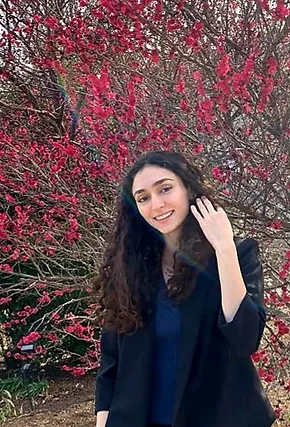
Janet Abou-Elias
Research Fellow
Janet Abou-Elias is a Founding Board Member at Women for Weapons Trade Transparency and a Research Fellow at the Center for International Policy. Her research focuses on international arms trade policy, U.S. foreign policy, and sustainability initiatives.
Janet holds a B.A. in International Relations and Global Studies and Middle Eastern Languages and Cultures from The University of Texas at Austin. Her academic background centers on International Security, Middle Eastern politics, and the intersection of gender and conflict. She is passionate about creating a world where people's safety and security are central to arms trade policies and sustainable corporate practices become the standard.
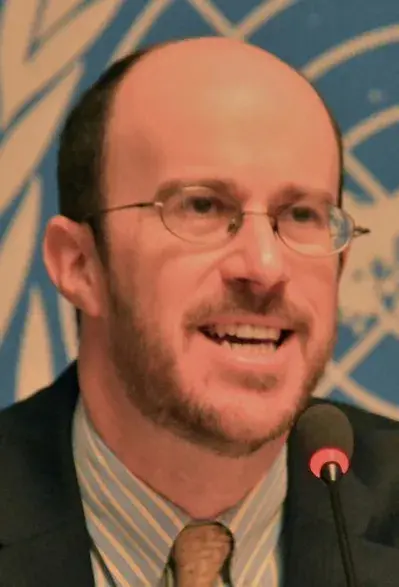
Jeff Abramson
Senior Non-Resident Fellow
Jeff Abramson is a senior fellow at the Center for International Policy and also directs the Forum on the Arms Trade. He was recently a senior fellow at the Arms Control Association, and prior to that managed the Landmine and Cluster Munition Monitor, the de facto monitoring regime for the Mine Ban Treaty and Convention on Cluster Munitions. Immediately prior to joining the Monitor, he served as a policy advisor and director to the secretariat of Control Arms, the global civil society alliance that championed the adoption of the Arms Trade Treaty that for the first time established global regulations for the trade in a wide array of conventional weapons. He is also former Deputy Director of the Arms Control Association and Managing Editor of their publication Arms Control Today. An arms trade expert, his work has been published in numerous journals and comments cited by major US and global media.
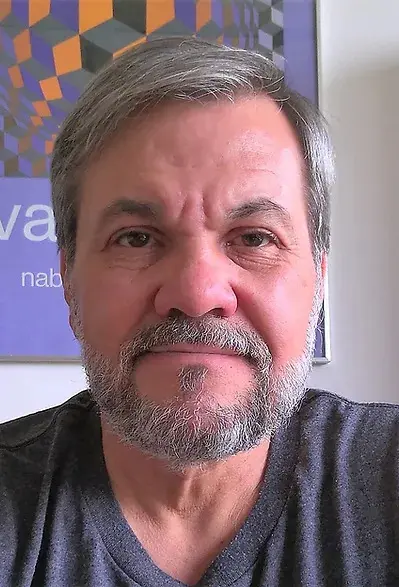
Senior Non-Resident Fellow
Michael W. Chamberlin is a non-resident senior fellow at The Center for International Policy. Mr. Chamberlin has been a human rights defender in Mexico for 30 years. He has specialized in documenting and analyzing grave human rights violations and crimes against humanity where state and non-state actors have had international responsibility. He has been a consultant on enforced disappearances and the victims' rights to truth, justice, and reparation. Chamberlin has submitted reports to the ICC on crimes against humanity committed in Mexico in the ongoing war against drugs and represents cases at the UN Human Rights Committee.
Previously, Mr. Chamberlin worked as a consultant on indigenous peoples' rights, especially in internal forced displacement and the armed conflict in Chiapas, where state and non-state actors committed attacks against the civil population.
From 2017 to 2020 he served as a member of the Directive Council of the Human Rights National Institution (Comisión Nacional de Los Derechos Humanos), and from 2012to 2016 as a member of the Advisory Council and Government Board of the Federal Mechanism for the Protection of Human Rights Defenders and Journalists.
Mr. Chamberlin has written several academic articles and has a weekly column in Spanish called "Poder y Derechos Humanos" (Power and Human Rights) in RompevientoTV
Michael Chamberlin is an anthropologist from the Escuela Nacional de Antropología e Historia (ENAH). He has a Master's degree in Human Rights and Democracy from Facultad Latinoamericana de Ciencias Sociales (FLACSO) in Mexico and Advanced Studies in Fundamental Rights from Unversidad Carlos III in Spain. He also has three diplomas in Human Rights International Law and Diplomacy from the International Service for Human Rights in Switzerland, Protection of Human Rights Defenders and Journalists from Protection International in Belgium, and Strategic Political Communication from FLACSO in Mexico.
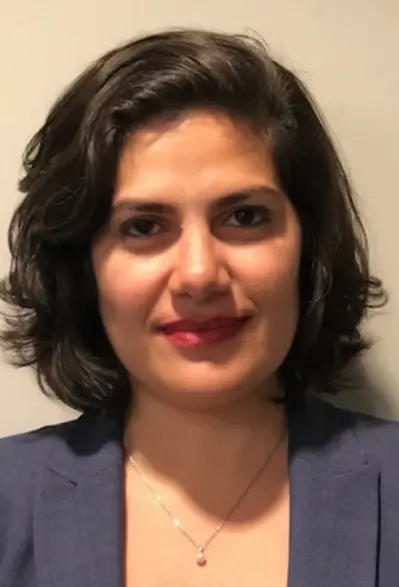
Senior Non-Resident Fellow
Negar Mortazavi is an award-winning journalist and political commentator, and editor and host of the Iran Podcast, based in Washington DC. She has been covering Iranian and Middle Eastern affairs as well as US foreign policy towards the Middle East for over a decade.
She is a frequent media commentator and has appeared on CNN, NBC, NPR, BBC, France24, Aljazeera, and other global outlets. She has written for Foreign Policy magazine, Politico, The Intercept, The Independent, and other publications, and is regularly invited to speak at panels and conferences around the world about Iranian affairs and US foreign policy.
She has been featured in FORBES among 30 inspirational women who are breaking boundaries in work and life. She has been named by Middle East Policy Council (MEPC) among 40 young leaders shaping the present and future of US-Middle East relations, and among 40 Iranian-American young leaders who have made an enormous impact on their community and country. She was named a rising star in US foreign policy by New America Foundation, and by the Center For Strategic and International Studies (CSIS), and in 2017 was named a Young Leader by Friends of Europe, a prominent European institution based in Brussels.
She was previously a television anchor for Voice of America where she hosted a Persian talk show on current affairs and an English news segment on US elections. She was also a Washington Correspondent for Iran International television, and previously worked at the International Center For Journalists, the National Iranian American Council, and the United Nations Development Programme headquarters in New York.
She received her Master's degree from Brandeis University and her Bachelor's degree from the University of Massachusetts. She grew up in Iran and Germany, immigrated to the United States in 2002, and has been living in forced exile from Iran since 2009.
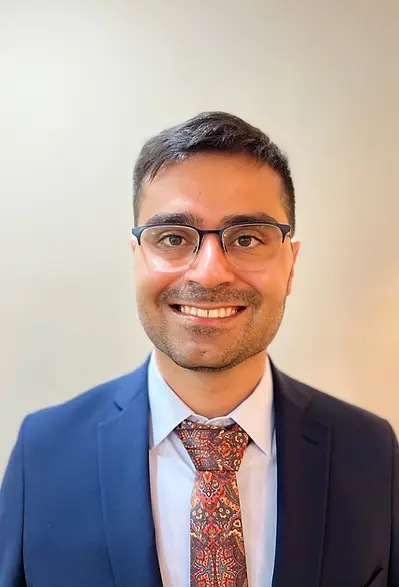
Senior Non-Resident Fellow
Sina Toossi is a senior non-resident fellow at the Center for International Policy. He has a professional background in producing research and analysis on U.S.-Iran relations, U.S. foreign policy towards the Middle East, and nuclear policy issues. His work experience includes extensive political advocacy efforts to make diplomacy and the promotion of human rights a centerpiece of U.S. foreign policy, including co-leading grassroots campaigns calling for the restoration of the 2015 Iran nuclear deal and highlighting the humanitarian costs of U.S. sanctions. Mr. Toossi’s background and in-depth understanding of Middle Eastern and Iranian culture enable his thorough and accurate analysis of the subject.
Previously, Sina was a senior research analyst at the National Iranian American Council, where he focused on tracking discourse within Iran on the impact of U.S. policies, spotlighting the human rights abuses of the Iranian government, and developing novel ideas to peacefully resolve U.S.-Iran disputes and other Middle Eastern conflicts. In this role, Sina wrote a resolution adopted by the Democratic National Committee in 2019 calling for a U.S. return to the Iran nuclear deal, and briefed Members of Congress and the Administration on Iran. Sina was also formerly a senior research specialist at Princeton University’s Program on Science and Global Security, where he undertook research projects on the Iran nuclear deal, a Middle East nuclear weapons-free zone, and relations between Iran and the Gulf Cooperation Council countries.
Sina is a widely published writer on Iran and U.S. foreign policy. His articles have appeared in Foreign Affairs, Foreign Policy, USA Today, and other outlets. His work earned recognition in Foreign Policy's "top five reads of the year on Iran" in 2020 and Al Jazeera English's "seven opinion pieces you should read" on the 2020 US presidential election. Additionally, his writing appeared in Foreign Policy's "5 top reads" of 2022 for an article on Iran's "Revolutionary Year." In 2024, Sina received the Middle East Policy Council’s 40 Under 40 Award, which recognizes the breadth of cultural, economic, and political relationships between the US and countries of the Middle East. He has also been featured or quoted by BBC World News, CNN, the Guardian, Vox, BBC Persian, and more. He holds a Master’s degree in International Relations from American University and a Bachelor’s degree in Economics and Political Science from the University of Illinois Urbana-Champaign.
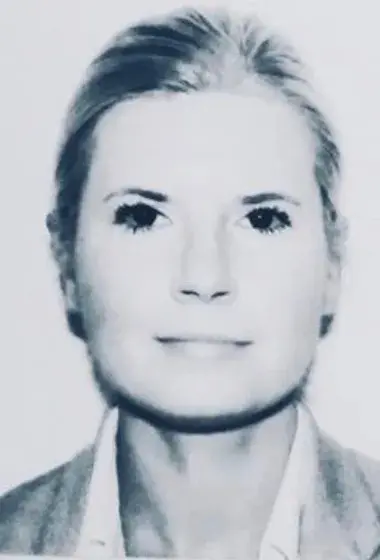
Joanna Rozpedowski
Senior Non-Resident Fellow
Joanna Rozpedowski is a non-resident senior fellow at the Center for International Policy, as well as a political scientist and international law scholar with an extensive international research portfolio and publication record.
She specializes in international human rights and humanitarian law, geopolitics, global security, U.S.-E.U. relations, climate and conflict migration, and judicial accountability mechanisms for international crimes. Her most recent publications focused on hybrid wars, laws of armed conflict, disinformation, and international laws guiding exploration in outer space.
She held visiting research appointments and policy fellowships at the University of Oxford and George Mason University worked for U.S. government agencies in Washington D.C. and Brussels, taught at universities in the United States and Europe, and presented her research at numerous international symposia, conferences, colloquia, and published monographs, book chapters, book reviews, and articles in academic journals and popular media outlets.
Professor Rozpedowski received substantial specialized training in international law and transnational organized crime at the United Nations Office on Drugs and Crime in Vienna, at Leiden University in The Hague, and at the European University Institute in Florence, Italy.
She is the recipient of the U.S.-U.K. Fulbright Award, the UNODC Best Legal Case Award, the Adam Smith Fellowship, and the Leadership Insitute Fellowship. Professor Rozpedowski undertook research studies at the University of Liverpool School of Law, where she earned an LL.M. (Honors) in International Law with a specialization in International Human Rights Law, and a Ph.D. in Government and International Affairs from Durham University in the United Kingdom.
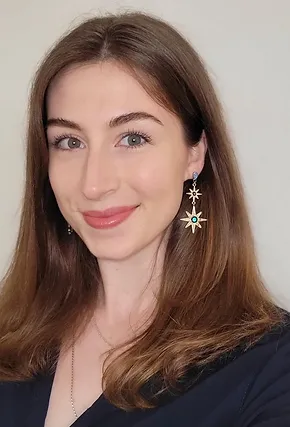
Lillian Mauldin
Research Fellow
Lillian Mauldin is a Founding Board Member of Women for Weapons Trade Transparency and a CIP Research Fellow focusing on political strategy and legislative and grassroots advocacy. Lillian brings expertise and knowledge across a wide range of thematic issues and governance levels, including federal, state, and local. In her work, Lillian hopes to help enact policies that will prioritize holistic human wellbeing over all else and that will demilitarize the institutional fabrics of the United States.
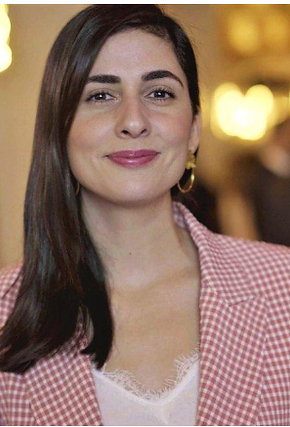
María José Espinosa Carrillo
Senior Non-Resident Fellow
María José Espinosa Carrillo is an economist and foreign policy expert, bringing over fifteen years of expertise in policy research, advocacy, and international relations. She is a non-resident senior fellow at the Center for International Policy and Executive Director at the Center for Democracy in the Americas (CDA), where she advances its mission to influence U.S. policy toward the Americas through thoughtful engagement, partnerships, and mutual respect.
As CDA’s Executive Director, María José has effectively shaped advocacy, program, and communication strategies focusing on key regional issues such as migration, LGBTQ+, and women's rights, as well as protections for refugees and migrants. Her commitment to fostering dialogue has led her to amplify voices from Latin America and the Caribbean in the U.S. policy sphere and spearhead over twenty high-level U.S. delegations on informative trips to Central America, Cuba, and the U.S.-Mexico border.
Earlier in her career, María José delved into the economic, political, and social facets of U.S. relations with Asia and Oceania and taught at the University of Havana's School of Economics. María José was recognized by New America as one of the 2020 Latino National Security & Foreign Policy Next Generation Leaders. She holds an M.Sc. in Environmental Economics and Tourism from the Universitat de les Illes Balears in Spain; an M.Sc. in Economics from the University of Havana in Cuba; and a B.A. in Economics from the University of Havana.
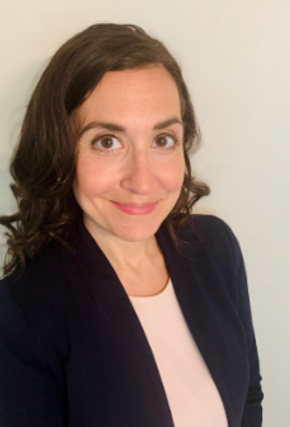
Nadine Farid Johnson
Senior Non-Resident Fellow
Nadine Farid Johnson is a non-resident senior fellow at the Center for International Policy and an attorney and former U.S. diplomat with extensive experience in geopolitics and public policy. Her areas of expertise include free expression, democracy and good governance, and technology policy.
Nadine has lived and worked on four continents. At the State Department, her remit included U.S. multilateral policy and UN Special Missions engagement in conflict zones in the Middle East, security and environmental concerns in the Levant and Iraq, and issues of fraud and illegal smuggling operations in West Africa.
Nadine has testified before Congress as a constitutional expert. Her civil society and advocacy leadership includes serving as the Managing Director for Washington and Free Expression Programs for PEN America, leading engagement with governments in the foreign policy, tech policy, and domestic policy spheres and, previously, as the Executive Director of the ACLU of Kansas. A frequent media contributor, her commentary has appeared in The New York Times, The Wall Street Journal, The Atlantic, World Politics Review, Al-Jazeera English, and other national and international publications.
A former professor of law, Nadine began her academic career as a Harvard Law School Climenko Fellow. She is a graduate of DePauw University and Tulane Law School, and studied at the U.S. Naval War College.

Terrell Jermaine Starr
Senior Non-Resident Fellow
Terrell Jermaine Starr is a non-resident senior fellow at the Center for International Policy. The Detroit native is an independent American journalist widely known for his coverage of the current Russian invasion of Ukraine. He is the founder and host of Black Diplomats, a weekly podcast reporting on foreign affairs and Eastern European politics. Terrell has been a Fulbright grantee and was formerly a nonresident Senior Fellow at the Atlantic Council's Eurasia Center. Conversant in Russian, Ukrainian, and Georgian, he is a recognized authority on Ukraine-U.S. relations, Georgian politics, Central Asia, and American democracy.
As a journalist, he is probably one of the few foreign affairs reporters who compares diplomacy to the narcotics trade. In fact, one of his most popular columns compared Russian President Vladimir Putin to fictional drug lord Marlo Standfield on the HBO series The Wire.
That’s Terrell’s approach to foreign affairs news in a nutshell: making things simple and relatable to the everyday listener. His work focuses on U.S. domestic politics, racism in the U.S. and abroad, Eastern European affairs, and other foreign policy issues. Each week on his Black Diplomats podcast, Terrell gives his take on world affairs with the help of expert guests indigenous to the regions being discussed. Black Diplomats is formatted to amplify the voices of Black and other non-white experts on foreign policy.
Terrell’s sixteen years in journalism include stints as FUSION’s national political correspondent covering the 2016 presidential campaign. From 2017 to 2021, he served as The Root’s national political correspondent. Among the many notable interview subjects he interviewed while covering the 2020 presidential race and the 2018 midterm elections are political powerhouses Kamala Harris, Stacey Abrams, Bernie Sanders, and Elizabeth Warren. Before that, he was a senior reporter at Foxtrot Alpha, a site that focuses on military, technology, and policy. He is also a contributor to Foreign Policy magazine, the Washington Post, Outrider, and O, the Oprah Magazine.
Terrell was in Kyiv when the Russian invasion of Ukraine began in 2022 and his live, on-the-ground video stories for television networks such CNN, MSNBC, and Al Jazeera introduced his unique style of reporting to millions of people around the globe.
As a Peace Corps volunteer in Georgia from 2003 to 2005, Terrell witnessed the Rose Revolution that peacefully ousted Eduard Shedverdnadze in favor of Mikhail Saakashvillli; he was also a Georgian language student in the capital of Tbilisi in 2008 when Russia invaded the country. Terrell lived in Ukraine as a Fulbright fellow and a freelance journalist from 2009 to 2010, during which time he produced a photojournalism project on the lives of Black Ukrainians.
Terrell has a master’s degree in Russian, East European, and Eurasian Studies where his work focused on the EU’s integration of former communist states and a second master’s in Journalism from the University of Illinois. He earned his bachelor’s degree in English at Philander Smith College, a historically Black college in Little Rock, Arkansas.
While he is based in Brooklyn, New York, Terrell spends much of his time in Ukraine and regularly travels to Central Asia and Western Europe for reporting assignments.

Van Jackson
Senior Non-Resident Fellow
Van Jackson is a non-resident senior fellow at the Center for International Policy. He is also a senior lecturer in international relations at Victoria University of Wellington in New Zealand, and a senior research scholar at Security in Context where he co-directs the "Multipolarity, Great-Power Competition, and the Global South" project. He specializes in East Asian and Pacific security, critical analysis of defense issues, and the intersection of working-class interests with foreign policy.
Jackson is the author of the Un-Diplomatic Newsletter, as well as four books on international relations, including most recently Grand Strategies of the Left: The Foreign Policy of Progressive Worldmaking (Cambridge University Press, 2023) and Pacific Power Paradox: American Statecraft and the Fate of the Asian Peace (Yale University Press, 2023). His writing has been featured in wide-ranging outlets, including The Nation, New York Times, Washington Post, The Atlantic, Foreign Affairs, Dissent Magazine, and Current Affairs. A one-time "defense intellectual" turned peace strategist, Jackson previously served as a strategist in the Office of the Secretary of Defense during the Obama administration and is a U.S. Air Force veteran.
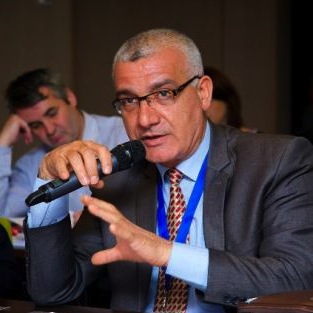
Omar Shaban
Leahy Fellow
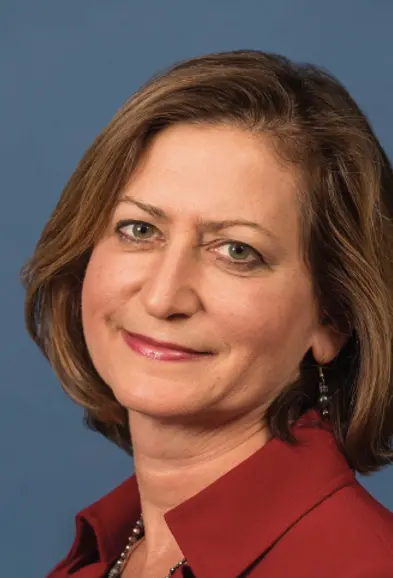
Diana Ohlbaum
Board Chair
Diana Ohlbaum is a lifelong advocate for peace and justice. Most recently, she served as Senior Strategist and Legislative Director for Foreign Policy at the Friends Committee on National Legislation, the Quaker peace lobby. In that role, she directed FCNL’s foreign policy lobbying team and led an effort to replace the current U.S. foreign policy paradigm of military domination and national superiority with a more ethical and effective one based on cooperation and mutual respect.
From 2013-2018, Dr. Ohlbaum ran an independent consulting firm specializing in advocacy, political strategy, and legislative impact. For nearly 20 years before that, as a Senior Professional Staff Member of the House Foreign Affairs Committee and the Senate Foreign Relations Committee, she conducted oversight of foreign assistance programs and coordinated efforts to overhaul the Foreign Assistance Act of 1961. During the Clinton administration, she served as Deputy Director of USAID's Office of Transition Initiatives, a cutting-edge unit designed to advance peace and democracy in priority conflict-prone countries, and after that, as Director of Public Policy for InterAction, an alliance of NGOs engaged in humanitarian relief and international development.
In addition to the CIP Board, Dr. Ohlbaum serves on the Advisory Council of the United Nations Association of the National Capital Area. She holds a Ph.D. in political science from Johns Hopkins University and a B.A. in Russian Studies from Amherst College.
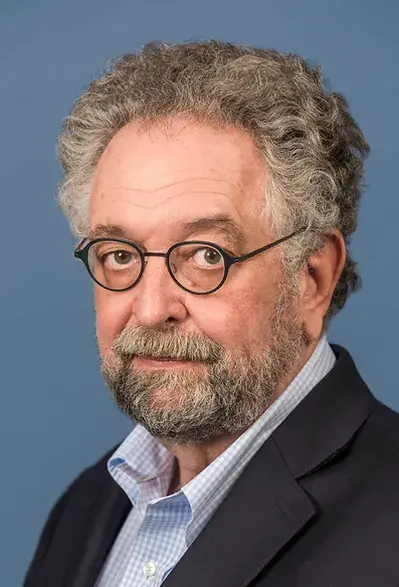
Conrad Martin
Board Vice Chair
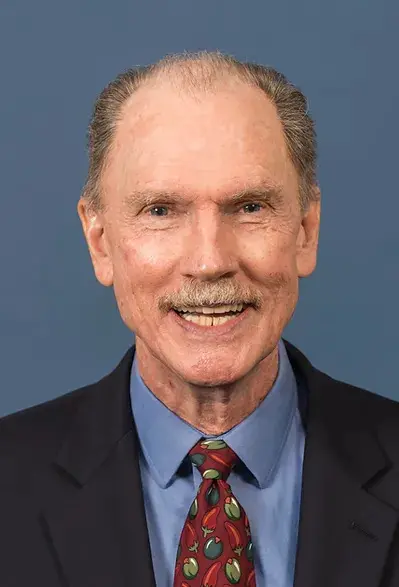
Joseph Eldridge
Joe Eldridge has spent more than twenty five years working in the public policy arena as an advocate and analyst on international human rights and humanitarian issues. In 1991, he established the Washington office of the Lawyers Committee for Human Rights; during the mid-1980s he worked in Honduras consulting on human rights and development issues; and after a three year sojourn in Chile in the early 1970s he co-founded the Washington Office on Latin America and served as its first director.
He has a MA in International Relations from American University, a MDiv from Perkins School of Theology at SMU, and a DMin from Wesley Theological Seminary. He is married to Maria Otero and they have three children.
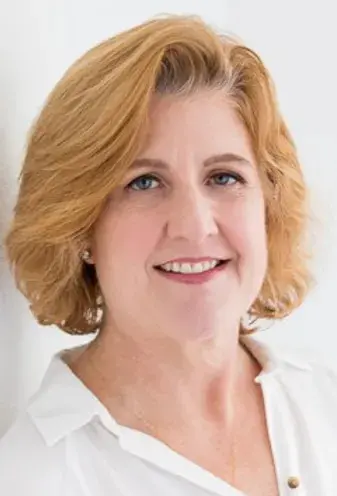
Regan Ralph
Regan Ralph is the founding President and CEO of the Fund for Global Human Rights and has directed the organization since its founding. Prior to launching the Fund, Regan was Vice President for Health and Reproductive Rights at the National Women’s Law Center in Washington, D.C., where she led advocacy, policy, and educational strategies to promote the quality and availability of health care for American women.
Recently, the Regan Ralph feminist leadership fund was established to honor Regan’s commitment to bold new thinking and amplifying women’s voices. The $1 million, five-year fund will provide vital resources to feminist leaders across the globe.
From 1992-2001, Regan helped build and ultimately directed the Women’s Rights Division of Human Rights Watch, where she developed campaigns to ensure the prosecution of sexual violence in conflict as a war crime, to secure recognition of gender-based persecution as grounds for asylum, and to promote women’s rights in countries including Russia, Egypt, Turkey, South Africa, Pakistan, and Mexico.
Regan is a graduate of Harvard University and Yale Law School and studied international law at the London School of Economics and Arabic at the American University in Cairo. She serves on the boards of EG Justice and WITNESS; the advisory council of the Women’s Law and Public Policy Fellowship Program at Georgetown University Law Center; the advisory committee of The Council for Global Equality; the global practitioner council at Stanford University’s Program on Social Entrepreneurship; and the steering committee of the International Human Rights Funders Group.
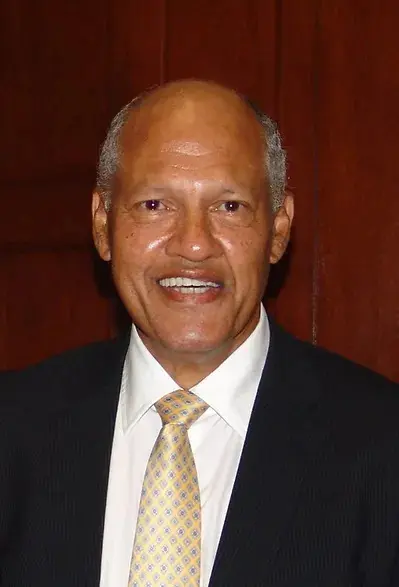
Wilmot James
Wilmot James is a Senior Research Scholar at the Institute for Social and Economic Research and Policy (ISERP) at Columbia University and an Honorary Professor of Public Health at the University of the Witwatersrand in Johannesburg. He researches pandemic response and biosecurity, convenes high-level meetings on planetary threats, leads the Center for Pandemic Research in the College of Arts and Sciences, and is an Associate Director in the Program in Vaccine Education at the Vagelos College of Physicians and Surgeons. He has teaching experience from the University of the Western Cape and the University of Cape Town and post-doctoral and visiting professorial experience from Yale University, Indiana University, Edinburgh University, the Open University, and California Institute of Technology. Wilmot co-convenes the Schmidt Futures supported Columbia-Witwatersrand Vaccine Safety and Confidence-Building (VacSafe) Working Group. He serves as a senior consultant in biosecurity to the Washington DC-based Nuclear Threat Initiative Bio; as a consultant to the Africa Center for Disease Control (Africa-CDC); and is co-chair of the National Framework sub-working group of the Global Partnership’s Signature Initiative to Mitigate Biological Threats in Africa. Wilmot was previously a Member of Parliament (South Africa) and opposition spokesperson on health, trade and industry, schools, and higher education. He served on the Board of Trustees for the Ford Foundation between 1996 and 2008 and currently serves on the Advisory Board of Resolve to Save Lives. Wilmot is the author and/or editor of 17 books that include the policy-oriented Vital Signs: Health Security in South Africa (2020), Nature’s Gifts: Why We are the Way We Are (2010), and a co-edited collection of Nelson Mandela’s speeches Nelson Mandela In His Own Words (2003), given to the late President on his 85th birthday.

Rula Jebreal
Rula Jebreal is an award-winning journalist, author, scholar, and foreign policy expert. Born in Haifa, her experience growing up in a Palestinian orphanage motivated her distinguished career in peace and security studies and dedication to immigration rights. She is currently a visiting professor at the University of Miami, where she teaches journalism and communication courses focused on propaganda and genocide. In 2021, Jebreal was awarded an Honorary Doctorate in Political Science by the University of Messina in Italy.
Previously, Jebreal served on the G-7 Gender Equality Advisory Council (GEAC) and was a visiting professor at the American University of Rome (AUR). At AUR, she was instrumental in the creation of a scholarship program to support students from conflict-torn countries, including Syria, Afghanistan, Swaziland, Egypt, Palestine, and Ukraine. For this work, Jebreal was awarded an honorary Doctorate in Humanities from AUR in 2017. Jebreal’s writing is consistently featured in and covered by major international media outlets.
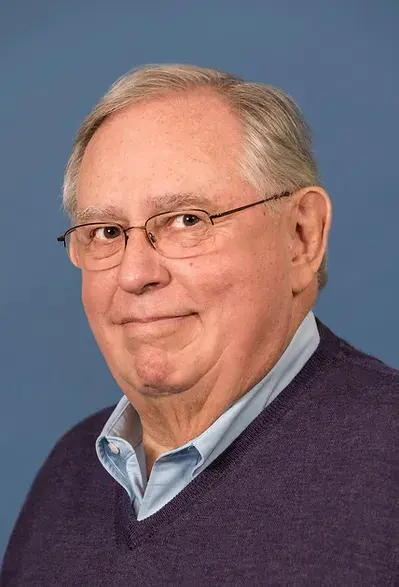
Jack Blum
Board Treasurer
Jack Blum is a Washington lawyer who is an expert on white-collar financial crime, international tax evasion and one of this country’s premier advocates for victims of financial fraud. He spent fourteen years as a staff attorney with the Senate Antitrust Subcommittee and the Senate Foreign Relations Committee. He played a central role in the Lockheed Aircraft bribery investigation of the 1970's – which led to the passage of the Foreign Corrupt Practices Act – and in the investigation of the Bank of Credit and Commerce International (BCCI).
Blum has been a consultant to the United Nations Centre on Transnational Corporations, the United Nations Office of Drug Control and Crime Prevention, and served as the chair of the experts group on international asset recovery, which was convened by the United Nations Centre for Drug Control and Crime Prevention. He often testifies about money laundering and tax evasion before U.S. congressional committees. Currently, Blum serves as ADA Counsel and is Chair of Tax Justice Network USA, and the Violence Policy Center.
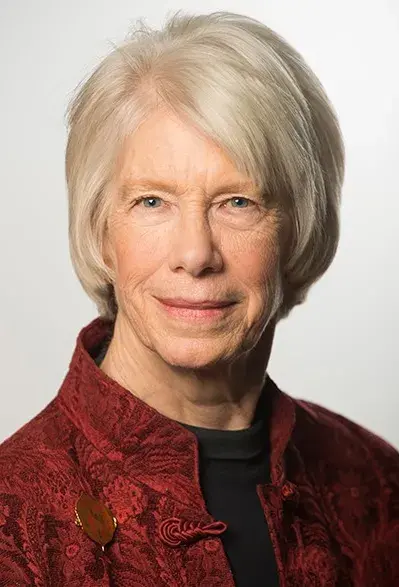
Adele Simmons
Chair
Adele Simmons is president of the Global Philanthropy Partnership, which works to strengthen the infrastructure of global philanthropy and is editor of Global Giving Matters.
Mrs. Simmons was president of the John D. and Catherine T. MacArthur Foundation for a decade, overseeing grants of over $1.5 billion. The foundation’s international programs focus on the environment, population, international peace and security, understanding inequality within and among nations and climate change.
Mrs. Simmons has served on a number of Commissions and Committees relating to Global Affairs including the World Bank Institute Global Equity Initiative, President Carter’s Commission on World Hunger, President Bush’s Commission on Sustainable Development, Commission on Global Governance, as well as the UN High Level Advisory Board on Sustainable Development.
Before joining the MacArthur Foundation, Simmons was president of Hampshire College and a dean at Princeton and Tufts Universities.
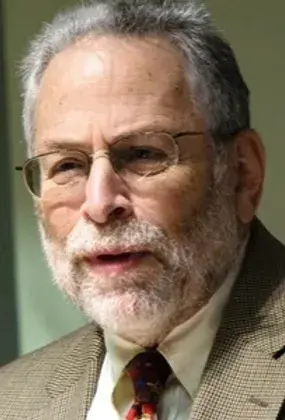
Philip Brenner
Philip Brenner is Professor of International Relations and Affiliate Professor of History at American University. He has served as the Senior Associate Dean for Academic Affairs and Director of the U.S. Foreign Policy Program in the School of International Service, and and as Co-Director of American University's Inter-Disciplinary Council on Latin America.
His most recent book is A Contemporary Cuba Reader (Rowman and Littlefield, 2007). He is also the co-author of Sad and Luminous Days: Cuba's Struggle with the Superpowers after the Missile Crisis(Rowman and Littlefield, 2002), and the author of numerous articles in academic journals, magazines and newspapers, and chapters in anthologies. A specialist on U.S. foreign policy towards Latin America, Dr. Brenner is a member of the advisory boards of the National Security Archive and the Center for Democracy in the Americas.
He received his Ph.D. in political science from Johns Hopkins University, and his B.A. in history from Columbia University.

Paul Sack
As a businessman, Paul Sack’s career has been in real estate—acquiring and managing properties for investors. In 1975, he founded The RREEF Funds to facilitate such investment by large pension funds. RREEF owned and managed $95 billion of real estate at its peak and is now owned by Deutche Bank.
In 1966-7, he was country director of the Peace Corps program in Tanzania, comprised of 380 Volunteers and a professional staff of 12. In 1968-9, he worked in Peace Corps/Washington as director of the Office of Planning, Programs, and Research, which made the decisions as to which requests from overseas for Volunteers would be approved and thereby influenced the character of Peace Corps programs.
Returning to his home in San Francisco, he enrolled in the Ph.D. program of the economics department at the University of California at Berkeley, where he specialized in the economics and politics of development and secured his Ph.D. in political economy in 1975. He also holds an A.B. degree from Harvard College in economics and an MBA from the Harvard Business School.
He is an enthusiastic collector of photography and a former trustee of the San Francisco Museum of Modern Art, the San Francisco Art Institute, and the Ansel Adams Center.
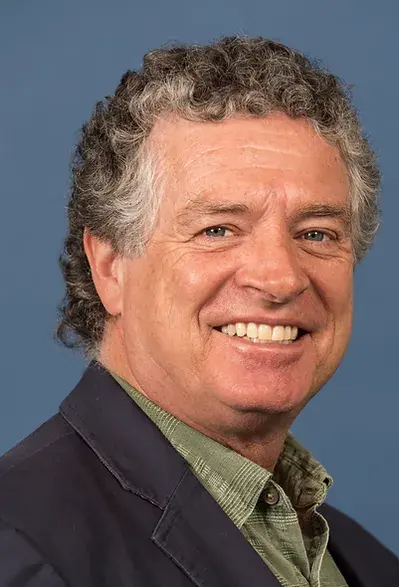
Matt Balitsaris
Matt Balitsaris is a musician and record producer. He lives with his wife, Margaret, and various animals in Bucks County Pennsylvania, where he has a recording studio, Maggie’s Farm (maggiesfarmrecording.com).

Mike Farrell
Mike is one of four children. His father, Joe, who died in 1956, was a carpenter at Hollywood studios. Mike attended grammar school with Natalie Wood and Ricky Nelson. He entered the Marines in the 1950s for two years. Later, he attended the University of California at Los Angeles and studied acting at the Jeff Corey Workshop. He started getting big parts in movies, which led to a regular role on Days of Our Lives (1965) and, ultimately, to M*A*S*H (1972). When M*A*S*H (1972) went off the air, he resisted series TV for many years until he was offered Providence (1999). In the meantime, he formed his own production company, which made the Robin Williams vehicle, Patch Adams (1998), based on Mike's own acquaintance with the doctor. Mike is very politically involved. He lobbied against the firing of gay teachers. He was outspoken about the US involvement in El Salvador in the 80s. He served as a member of California's Commission on Judicial Performance from February 2, 1998 to February 28, 2001.
Bio from IMDB.

Dessima Williams
Dessima D Williams is a Grenadian diplomat and Scholar, and the founder and director of the Grenada Education and Development Programme (GRENED) as well as the co-founder of HAITIwomen. She has served as Ambassador of Grenada to the United Nations and as Grenada's ambassador to UNESCO and to the Organization of American States. Ambassador Williams also served as the Alliance of Small Island States (AOSIS) chair during COP15 in Copenhagen (2009-2011).
Prior to her appointment as UN ambassador she was a professor of Sociology and Social Policy at Brandeis University. Williams received a PhD in international relations and a master's degree in international development from American University and holds a bachelor's degree from the University of Minnesota in international relations.
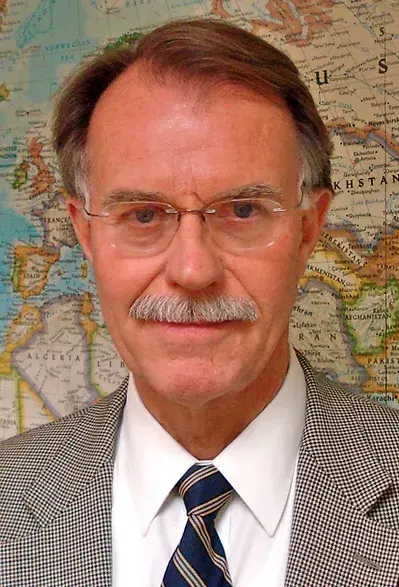
William Goodfellow
William Goodfellow is the director of the Afghanistan Peace Campaign, which builds public support for an enduring peace settlement that will end the war, bring U.S. troops home and promote national reconciliation in Afghanistan.
Goodfellow was one of the founders of the Center for International Policy (CIP) in 1975 and served as executive director from 1985 to 2017. Goodfellow testified before congressional committees and published op-ed articles in major U.S. newspapers. During the late 1970s, Goodfellow and his colleagues at CIP successfully lobbied for legislation that requires the executive branch to consider a country’s human rights record before providing economic and military aid. In the 1980s, Goodfellow promoted negotiations to end the civil wars in Nicaragua and El Salvador. He worked closely with Costa Rican President Oscar Arias and championed the Esquipulas peace process in the United States. He attended every Central American summit meeting and spoke and published articles about the peace process, which silenced the guns in Central America.
Goodfellow directed CIP’s Common Defense Campaign to reduce U.S. military spending and change the way America relates to the rest of the world. He was also the co-chair of the Afghanistan Study Group (2009-2013), which promoted a negotiated settlement in Afghanistan.
From 1973 to 1975, Goodfellow was an associate at the Indochina Resource Center, a NGO staffed by academics and activists who produced scholarly research for the anti-Vietnam War movement. He spent the last six months of the war in Indochina and was evacuated from both Cambodia and Vietnam in the spring of 1975.
